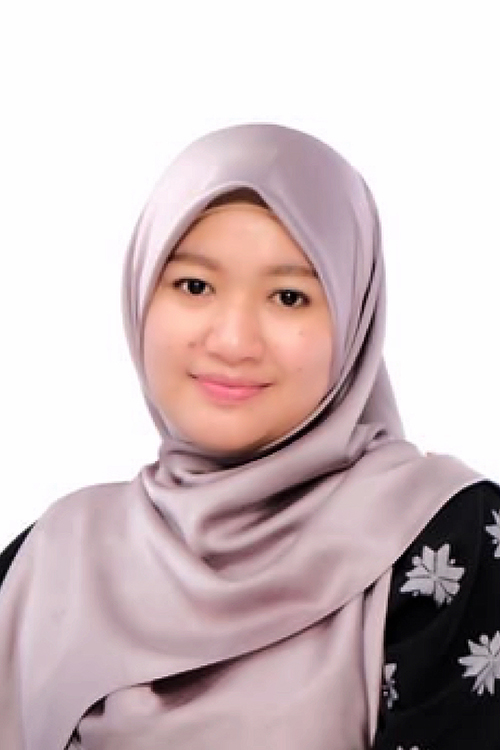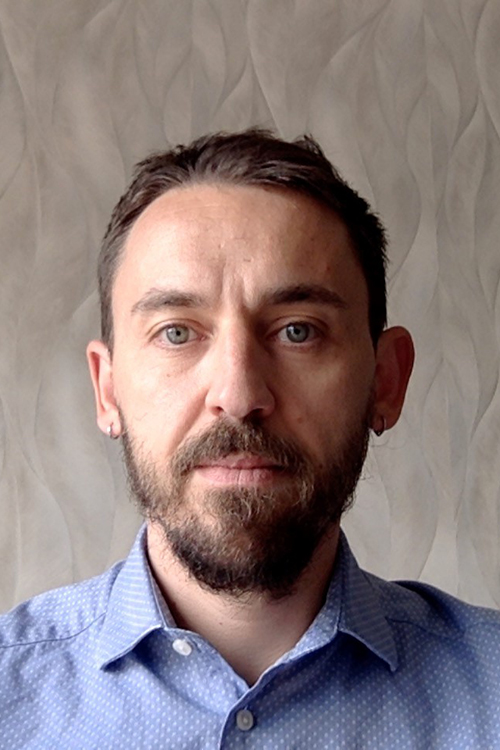Navigating the Transition: Perspectives on Shifting from Open Vessel Harvesting to Endoscopic Vessel Harvesting

Eliziyanti Binti Safian currently works at the Institut Jantung Negara in Kuala Lumpur, Malaysia. Eliziyanti has been involved in cardiac surgery for more than 17 years, including four years as a scrub nurse in the cardiovascular operating room. Since first being qualified as a Registered Nurse in 2007 she has expanded her carrier development and currently serves as a certified Perioperative Surgeon Assistant, specializing in conduit preparation and assisting surgeons during cardiac surgery. Eliziyanti has always been fascinated by the intricate workings of the cardiovascular system and its role in overall health. She says she is committed to further developing her skills, keeping abreast of new techniques in healthcare, and contributing to advancements that lead to better patient outcomes. Since 2023 Eliziyanti has successfully completed 30 EVH cases.

Augusto Pellegrini, MD, is a Cardiovascular Surgeon at Ospedale Mazzini di Teramo. He graduated from medical school in 2010, and then in 2017 completed his cardiovascular surgery training at Turin University. Dr. Pellegrini began to work full time as a cardiovascular surgeon in 2018 at Papardo Hospital in Messina, Sicily. Because his EVH training began long before the end of his residency, he has successfully completed more than 300 procedures. Dr. Pellegrini has been interested in the human heart from the time he was in high school. He says that cardiovascular procedures are among the most difficult types of surgery and that he thrives on the challenges faced in the CVOR.
- Video Transcription
-
Why did you switch from Open Vessel Harvesting (OVH) to Endoscopic Vessel Harvesting (EVH)?
Eliziyanti Binti Safian: "The reason, I switched from the open vein harvesting to endoscopic vein harvesting because it was, driven by several factors affecting both personal and professional perspective. So, first, my professional growth and satisfaction. Advanced surgical technique means as a medical professional staying updated with the latest advancement in surgical technique is crucial. EVH represent a modern, minimally invasive approach. It aligns with the current trend in surgery. So mastering this technique has been both challenging and fulfilling. So in the positive feedback-wise, the gratitude and positive feedback from my patients who have undergone EVH compared to those who experienced open vein harvesting have been overwhelming. So it reinforces the notion that we are providing the best possible care."
Augusto Pellegrini: "Since we regularly perform minimally invasive cardiovascular surgery in our center, the main reason why we switched from open vein harvesting to a endoscopic, to an endoscopic vein harvesting is mainly to offer our contribution to the world of minimally invasive for this kind of technique, and at the same time to offer the same quality standards to the grafts and the whole final result."What benefits does EVH offer your patients?
Eliziyanti Binti Safian: "In my point of view, the benefit of EVH is it has a significantly improved the surgical experience and outcome for my patient. So, the reduced wound complication at times, comfort quickly, quicker recovery, improved aesthetics, comparable clinical efficacy and psychological eficacy all contribute to a better overall patient experience. It's gratifying to see my patient recovery more quickly and comfortably, knowing that they are receiving the best possible care."
Augusto Pellegrini: "The most important benefit we had switching to endoscopic vein harvesting is that wound problems associated to vein harvesting have practically disappeared. We regularly apply this kind of technique extensively to all our coronary patients, even those coming in emergency."
What is your advice for clinicians that are considering switching to EVH?
Eliziyanti Binti Safian: "My personal advice for switching EVH is understand the benefit meaning from patient outcome the clinical efficacy. So, invest in training. Equip your practice, engage your team, patient communication, which is you give the clear communication, pre and post op care, but gradually implement with the selective best cases and embrace feedback and continuous improvement."
Augusto Pellegrini: "As I always say, the advice I give to those who want to approach the world of endoscopic vein harvesting is to be patient and convince their senior surgeons to be patient as well. What often happens is that the endoscopic vein harvesting program is abandoned prematurely because the learning curve for this kind of technique is a little longer respect than the open vein harvesting. If you handle to overcome this first phase, you must persist and not give up at the first problem or at the first complication, even if conversion to open surgery might occurs, you need to keep on and try until you acquire the right skills at the right time and feel comfortable with procedure."

